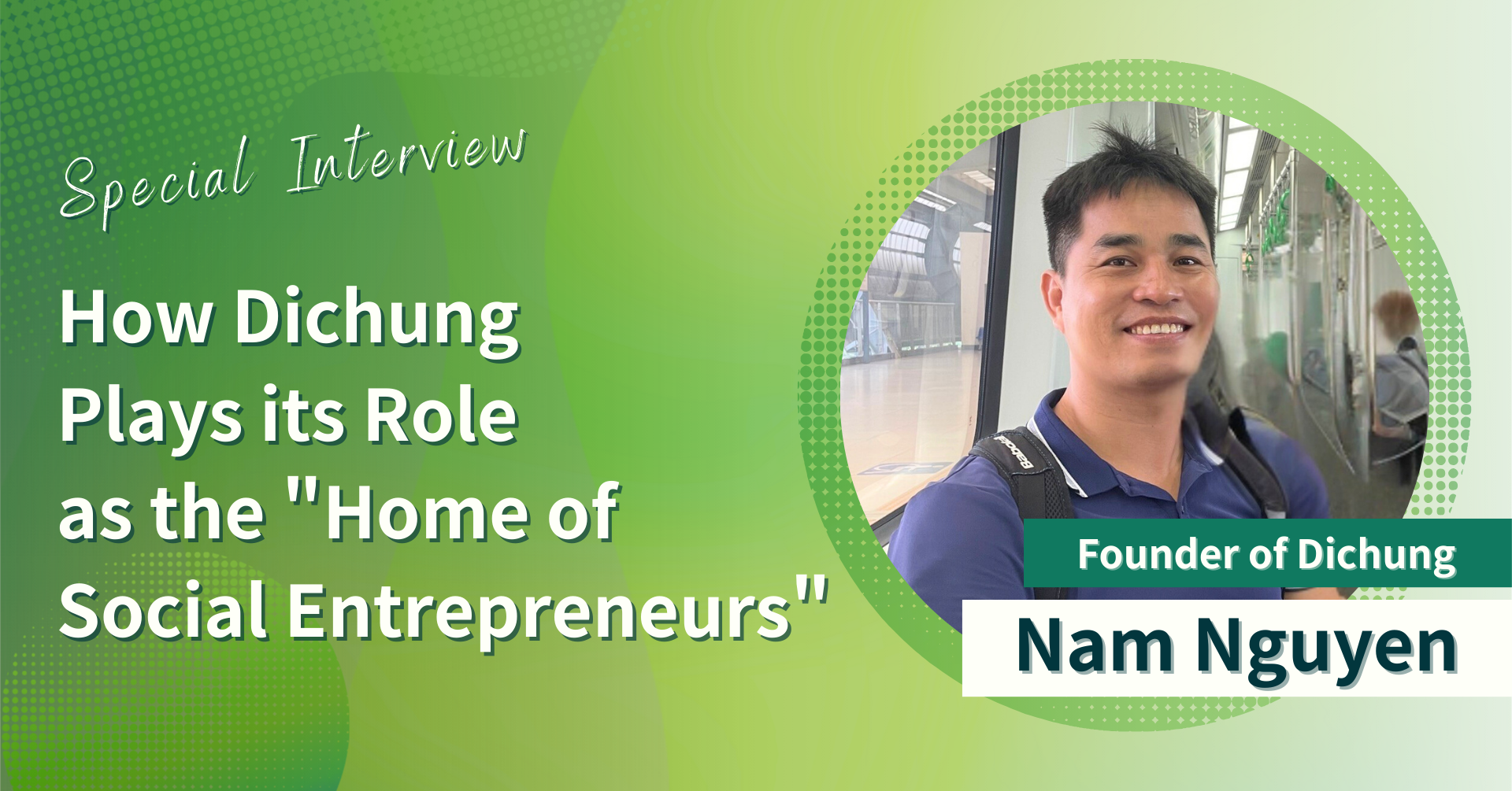
Dichung is a social startup based in Hanoi, Vietnam, that provides an online platform that connects people who need a ride with drivers who want to share or sell extra space on their vehicles. Their vision is to create a positive social and environmental impact by reducing pollution and traffic jams in urban areas of Vietnam. They have partnered with Cross Fields since 2013, and have accepted 8 volunteers in the Corporate Volunteer Program (CVP) thus far.
Cross Fields members had the opportunity to speak with Mr. Nam Nguyen, the Founder of Dichung about his ideas of leadership and collaborating with Cross Fields. Part 1 of this article can be accessed here (Written by Elena and Midori)
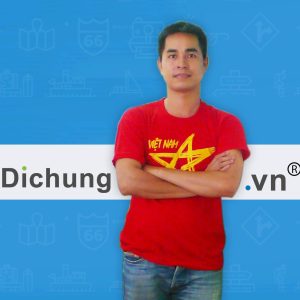
“Even a small organization, can do something big for society”
—How do you think volunteering at Dichung impacted the volunteers?
I think that one of the most important experiences that the volunteers gain after Dichung is that they experience working in a completely different working environment. In a large company, they have a well-funded, processed, and very structured job. But when they come to a small startup, they need to be very flexible and adapt to every situation to overcome the challenges day by day. We tend to be structured very flat, and are working with not much hierarchy, which is often a new experience for the volunteers.
I also think that they will gain the insight that even a small organization, with limited resources, can do something big for society. In a large company, there are a lot of resources, and the company tends to make decisions very carefully to make sure that they are making profit. For me, I didn’t create this company just to make profit. We are a mission-driven organization. We gather skill sets and resources from many different people to contribute something specific to an issue. That is why I appreciate every kind of resource, regardless of whether they are internal or a volunteer. We value a collaboration mindset.
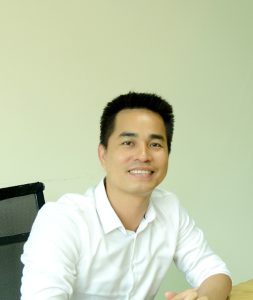
“I call Dichung ‘the home of social entrepreneurs’ – we invest in them”
—Why do you value their inner mindset so much?
Normally of course, when a small company like ours lacks resources, we need people who can contribute and create value right away. However, at the same time, I don’t think in a “buying skill” style: I want to work with people who have strong internal motivation. With the “buying skill” style, I will need to make the effort to pull them toward me…but I don’t have the time for such a management style. People with strong internal motivation will be able to take action on their own. And by collaborating with people like this, we both gain in a positive, collaborative way, not just one-way.
Sometimes this is a risky strategy: the person you work with may not have enough ownership, which means you take the risk that he won’t give the best version of himself. But if you have someone who has enough motivation, his or her contribution will be double, triple, or maybe ten times more than that of a normal person.
I’m originally an investment guy, so I have an investment mindset. I like to invest in people. So, if they deserve it and they have the motivation to do something, I will invest the energy, time, and resources in them to make it happen. By doing so, the investment will bring some return for our company, their organization, and themselves.
—How do you hope the volunteers will be in the future, by investing in them?
In terms of skill, I think the volunteers already have very good skill sets, which is why their company is willing to invest money in them. What they need to improve now is only their mindsets. What I really want to do is turn them into social entrepreneurs. I call Dichung “the home of social entrepreneurs” – we invest in them. Although the volunteers only come for a short time, I expect that they have developed a social entrepreneur mindset when they go back to their organization, and can keep claiming ownership in their work. Even if they don’t become an entrepreneur who creates something completely new for Japan, at least they can become one within their company, and initiate some kind of new project to contribute to the company or society.
Compared to volunteering in NGOs that are focused on supporting a disadvantaged group of people, the social impact might not be easily seen here; Dichung is a tech company and we serve the mass market. But what I can contribute to the volunteers is my mindset of a social entrepreneur, and I believe that’s very important for them.
Through working with us, they will be able to gain more confidence; they will be able to see that even with limited resources, you can still do something to solve problems. My hope is that the volunteers go back to their company with this confidence and apply that kind of thinking. The resources at their company are so big that they can leverage them to do something really impactful and meaningful for their lives.
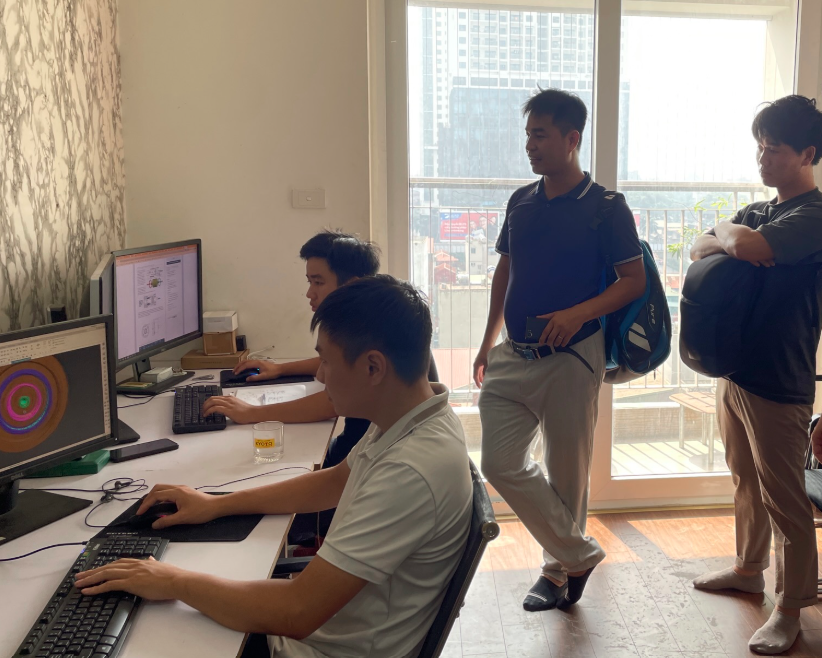 Dichung team working at their office
Dichung team working at their office—What kind of partner is Cross Fields to you?
I see Cross Fields side-by-side to Dichung as two organizations that have a different way of creating impact, but we share the same kind of mission-driven style. We already value and appreciate what Cross Fields is doing now, because maintaining a kind of bridge between the volunteers and host organizations takes a lot of effort.
I also view Cross Fields as having much more potential in the impact and value it can create in the coming years. I believe that it can become a kind of engine for creating impact for both Vietnam and Japan. We hope to continue to partner with Cross Fields in the long term, and collaborate on more projects that scales up the impact!
Afterwords
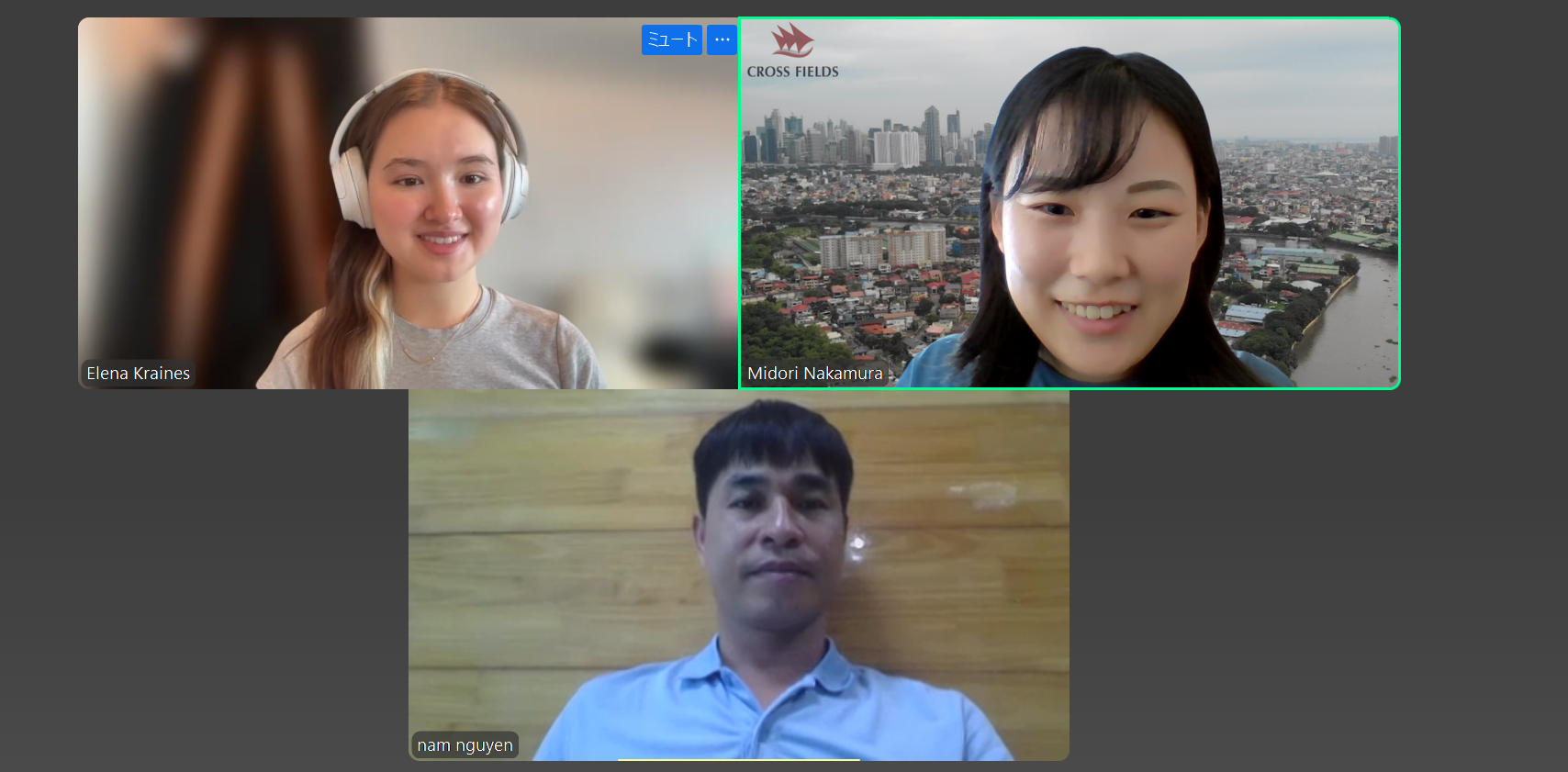
We were honored for this opportunity to learn about Mr. Nguyen’s story and the vision that drove him to create Dichung. It was touching to hear that he views the many volunteers he has accepted over the years as equal members of his team. We were inspired by his unique mindset of ‘investing’ in his employees, and his genuine belief in each of their potential to become social entrepreneurs as well. Cross Fields is excited to continue growing together with Dichung as partners with a shared goal for social impact! (Elena, Crossfields intern)
(Part one of this article can be accessed here)
~Interested in hosting volunteers? ~
Thank you for reading this article! If your organization is interested in hosting volunteers or activities of Cross Fields, please contact us from this page.
If you want to know more about Dichung, please visit here.